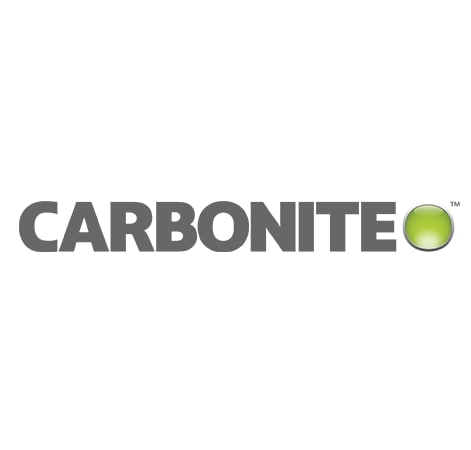Why is data protection important?

Keeping your data safe has never been more important. For most businesses today, electronic documents and records are essential to everyday operations. Whether your product is information-based or you’ve chosen to implement a data-driven business model, data protection companies make it easy to ensure your data is safely backed up and well shielded from cyberthreats.
Save time and get a free quote now.
Modern backup and data protection services are rapid and responsive, highly flexible, and generally more secure than legacy solutions. They enable businesses to better protect against, prepare for, and mitigate the effects of data loss, theft, corruption, or ransom.
This is because companies that specialize in backup and data protection have the infrastructure and expertise to better protect and manage most businesses’ data than could ever be achieved using in-house solutions.
Top cybersecurity companies can also help you make better use of your data, with scalable solutions for creating and managing databases, facilitating testing, analytics, and training, and ensuring compliance.
The data protection companies featured in this article can help you safely backup, rigorously protect, and better use your data.
What you need to know
Is data protection the same as backup?
Backup is one important part of data protection, but they’re not the same. Data protection refers to the ensemble of features and services which ensure that a business’s data is safe not only from corruption or deletion, but also from theft, accidental exposure, ransomware attacks, and other threats.
Additional services may include scanning for sensitive information, monitoring how files are copied and moved around, and ensuring users’ personally identifiable information (PII) is being properly handled. Cyber security is another important piece of the data protection puzzle, as ransomware, corporate espionage and other cyberthreats grow in frequency.
Data protection thus responds to a wide range of needs: protecting data from deletion or corruption, certainly, but also limiting threats, ensuring compliance, and boosting performance.
Does data protection ensure compliance?
No, but it can be a very useful tool. Compliance can be a complicated and tricky affair, as different regions and political entities have different requirements. Failure to comply with these regulations can result in heavy fines and costly downtime.
While using a data protection company doesn’t guarantee compliance with data regulations, it can make it significantly easier to achieve. The products featured below enable you to continuously scan for sensitive data, monitor file duplication or export, and customize access at multiple levels.
How much protection does my business need?
Unsurprisingly, this depends on your business and objectives.
If your business is (or strives to be) fundamentally data-driven, then leveraging huge amounts of data is something you’ll want help with. As we’ve already said, some data protection companies enable you to better manipulate and analyze your data, and provide solutions for easy scalability. These kinds of solutions are excellent for driving growth, but can be very costly.
If, however, you only need to store your data, ensure that you can recover files if needed, and protect against ransomware and other cyberattacks, then a less sophisticated approach will no doubt suit these requirements.
Another important question is how often you want to back-up, and for how long you want to keep your data. Many data protection companies charge on a sliding scale, charging higher rates for more frequent backups and longer data retention.
What does data protection cost?
Data protection plans are highly variable, with basic plans starting as low as $10 per device per month. If you’re looking for advanced features and large storage volume for twenty to thirty computers and servers, however, you can expect to pay several thousand dollars per month.
Most companies offer multiple plans with various add-ons or extra features, and pricing is often—though not always—based on the number of devices to be backed up and the overall storage volume needed. As a result, it’s difficult to give an exact range for data protection plans, and many providers require that you contact them for a quote.
Many providers offer innovative solutions for reducing your actual storage volume, like managing duplicate files or only backing up changes to files. These can help lower costs considerably.
Get a quote for data protection
How we review data protection companies
We consider several angles when reviewing data protection companies. Price is obviously an important element, although it can be difficult to compare between highly disparate products, so this is balanced with the other categories.
Customer service is another key factor. Response time and knowledge are absolutely key when it comes to helping businesses manage their data. If data is lost, a threat is identified, or something goes wrong with a routine backup, you’ll need expert advice, fast.
Next, we take a look at all the features and services offered by the company. Sheer breadth in this regard does not guarantee a high score. Rather, features and services should be genuinely useful, easy to implement, and fit seamlessly into the overall product.
Finally, where possible, we collect data on performance and reputation: serious data leaks, response to data security threats, general level of data loss over time, if any, etc. These are key questions that can greatly affect the overall score of a data protection company.
Comparison table
| Company | Physical platforms | Cloud platforms | Hybrid Cloud Storage | Customer support |
|---|---|---|---|---|
| Acronis | Windows, Linux, Mac, iOS, Android | Office 365, G Suite, VMWare, Citrix and more. | Yes | 24/7 Chat |
| CoSoSys | Windows, Linux, Mac, Thin, iOS, Android | AWS, Google, MS Azure | No | |
| Actifio | Windows, Linux | AWS, Azure, Google and more. | Yes | 24/7 Chat, Email & Phone |
| Carbonite | Windows, Mac, iOS, Android | Office 365, Azure | No | 24/7 Email |
| Code42 | Windows, Mac, Linux | OneDrive, Google, Box | Yes | Chat 8am–5pm (CT) 24/7 Chat/Phone for Premium |
Data Protection Reviews
1. Acronis review—Best for self-storage

Physical platforms: Windows, Linux, Mac, iOS, Android | Cloud platforms: Office 365, G Suite, VMWare, Citrix and more | Hybrid Storage: Yes | Customer support: 24/7 Chat
FOR: Supports most virtual, physical & cloud platforms; Easy scalability
AGAINST: Cloud storage costs extra; Costly for endpoint-heavy SMBs
Acronis stands out with a wide range of support physical and virtual platforms. Windows, Linux, and Mac workstations, of course, are all supported, but companies that rely on Desktop as a Service and other virtual platforms will appreciate easy integration with Citrix, VMWare, Oracle VM Server, and more.
Because cloud storage comes as a separate plan, Acronis is better suited to businesses which have already invested in or prefer to use on-premises storage. It boasts a wide range of features to facilitate and speed up both storage and recovery, like Universal Restore, which enables businesses to restore Linux or Windows systems to dissimilar hardware, or Instant Restore, for booting backups as a virtual machine and cutting recovery time to mere seconds.
Acronis’ per-endpoint pricing structure means it can get quite costly for SMBs looking to back up multiple workstations and servers. For those with the right budget, however, Acronis provides top-notch on-premises backup with AI-driven ransomware protection and blockchain-inspired anti-tampering.
Read our full Acronis review.
2. CoSoSys review—Best for regulations compliance

Physical platforms: Windows, Linux, Mac, iOS, Android | Cloud platforms: RDP, VDI | Hybrid Storage: No | Customer support: Email
For: Security-forward; Multiple deployment methods
Against: Pricing undisclosed; No backup options
Endpoint Protector by CoSoSys is a Data Loss Prevention (DLP) solution, with a focus on controlling and protecting sensitive data from internal and external theft or accidental release. It is not a backup solution, but rather enables businesses to identify, define, and scan for proprietary, mission-critical, or regulation-controlled information stored on computers and mobile and external devices (USB drives, digital cameras, printers, etc.)
As such, CoSoSys is an ideal solution for businesses that deal with highly sensitive information, and many of the businesses that use Endpoint Protector are in the healthcare, finance, manufacturing, and media sectors. In the same vein, businesses whose data falls under one or more regulations, like the GDPR or the California Consumer Privacy Act (CCPA), will have an easier time auditing data and enforcing policies across multiple platforms.
Content-aware protection enables businesses to define their own rules for what data to protect, while the eDiscovery tool facilitates its discovery, encryption, and eventual deletion. Support is limited to email only, although we found this acceptable as CoSoSys is first and foremost about management and protection of data, and not recovery.
3. Actifio review—Best for data-driven SMBs

Physical platforms: Windows, Linux | Cloud platforms: Office 365 & Azure | Hybrid Storage: No | Customer support: 24/7 Chat, Phone, Email
For: Excellent cloud integration; 24/7 customer support
Against: Complicated single-file restoration; Pricing undisclosed
Actifio is a data protection company whose mission statement is to help companies become truly data-driven. As a result, its products are heavily geared towards data-centered infrastructures: databases like Oracle and SQL Server, cloud servers like AWS and Azure, and hypervisors (virtual machine environments) like VMWare.
In terms of backup and recovery, Actifio has chosen to focus on reducing recovery times, by offering hybrid storage solutions that eliminate the need to perform recurring full backups. Storing backups in native format, inexpensive long-term data retention, and support for mixed private and public cloud infrastructure all make recovering extremely high-volume databases or virtual machine environments faster and more secure.
Businesses looking for modest, traditional backups with simple single-file granularity will no doubt find Actifio’s approach excessive, but if your business model relies heavily on data, can’t afford data downtime, and often has a need of rapidly duplicating and manipulating large databases, Actifio has much to offer.
4. Carbonite review—Best for small businesses

Physical platforms: Windows, Mac, iOS, Android | Cloud platforms: Office 365, Azure | Hybrid Storage: No | Customer support: 24/7 Email
For: Straightforward solution; Zero-downtime failover solutions
Against: Dissimilar Windows and MacOS clients; Slower backups
Carbonite has one of the most straight-forward products and pricing schemes of the solutions featured in this article. It offers cloud backup protection for laptops, workstations, servers, and external storage, plus hypervisor environments.
While simplistic and intuitive, Carbonite has a few noteworthy features. Carbonite Availability and Carbonite Recover, for example, allows for rapid switching between a primary and physical or cloud-based backup. In fact, it’s so seamless that Carbonite claims users may not even realize they’ve been shunted to the backup. This dramatically reduces downtime in the event of data loss or ransomware.
While some users have found the backups a bit slower than competitors, the demands on bandwidth and system resources are low, while the QuickCache feature enables businesses to restrict data-heavy operations to off-peak hours.
Pricing is best suited to small businesses, as it increases per 100GB. However, for one server, 25 computers, and 500GB of storage, you’re only looking at $50.00 per month, which is one of the most affordable options out there.
Read our Carbonite review.
5. Code42 review—Best for highly sensitive data

Physical platforms: Windows, Mac, Linux | Cloud platforms: OneDrive, Google, Box | Hybrid Storage: Yes | Customer support: 8am–5pm (24/7 Premium) Chat/Phone
For: High-performance risk management; Easy backup and restore
Against: 24/7 support costs extra; limited cloud platforms
Code42 provides protection against threats both internal and external, with an emphasis on the former. Businesses with highly sensitive data should take insider threats seriously. The frequency of theft and intentional leaks is on the rise, and as companies become more data-driven and reliant on proprietary data, this trend is likely to continue.
Code42 offers plans with a number of solutions for protecting data and mitigating risks. The basic idea is to monitor files for access, duplication, and transfer, with the goal of achieving better control over who accesses data at what time and for what reasons. The goal is to prevent data from being intentionally or accidentally modified, removed, or shared with the wrong people.
In addition to risk detection, Code42 also provides a simple and intuitive backup and restore solution. It monitors files for changes and backups as needed, and supports versioning, so you can easily restore individual files or an entire system.
If your business uses sensitive data or you are entering a period of data uncertainty, like shifting to a mobile workforce or undergoing an acquisition or merger, Code42 is one of the best data protection companies today for helping to manage the risks and respond to threats you may encounter.
10 best features of data protection
Continuous backup
This refers to backup solutions that monitor files for changes and back them up on the fly. It reduces overall bandwidth use and ensures backups are always up to date.
Two-factor authentication
Access to files and backups can be better secured with two-factor authentication (2FA), which requires users to enter a password and authenticate access through a secondary method, like entering a code received on a smartphone.
Deduplication
Data deduplication is a method of reducing overall file size when backing up. Files are scanned for duplicate data, which is then overwritten with a placeholder. This can drastically reduce costs and increase speeds.
Cloud environments
There exist a wide range of cloud environments today, from Software as a Service like Google Suite to cloud hypervisor environments like Microsoft Azure and Amazon Web Services. Support for cloud environments enables businesses better protect their cloud assets.
Reporting
Reporting of all kinds can make it easier to mitigate risks. Common reports include how users have accessed what files, what data has been duplicated or transferred to external devices, and information on backups, like frequency and overall success.
Secure data transmission
Automatically encrypting data as it leaves your company’s network is a particularly useful way of protecting against accidental leaks. Users may not always secure their devices as necessary, but if your data is encrypted before being transferred, it won’t matter if somebody gains access.
Content discovery
The ability to define certain content or contexts as high-risk and find instances of them across all environments enables businesses to more readily respond to threats, and give greater focus on more sensitive data.
Endpoint protection
A broad category of services that relates to monitoring the use of external endpoints, like mobile devices, USB drives, and external hard-drives. Administrators can grant access for certain peripheral devices and not others, and monitor and block file transfers onto external drives.
Regulations compliance
As data regulations become more strict and widespread, it gets harder to make sure data is being accessed, shared, and used properly. Regulations compliance features facilitate these tasks.
Bare metal backup
A bare metal backup is a complete backup of a system, including files, settings, and the OS itself. This is also referred to as cloning, or backing up a system image. Used in conjunction with virtualisation, it’s possible to restore one backup onto a new, dissimilar device.
from TechRadar - All the latest technology news https://ift.tt/3ieCgEk
via IFTTT
Comments
Post a Comment